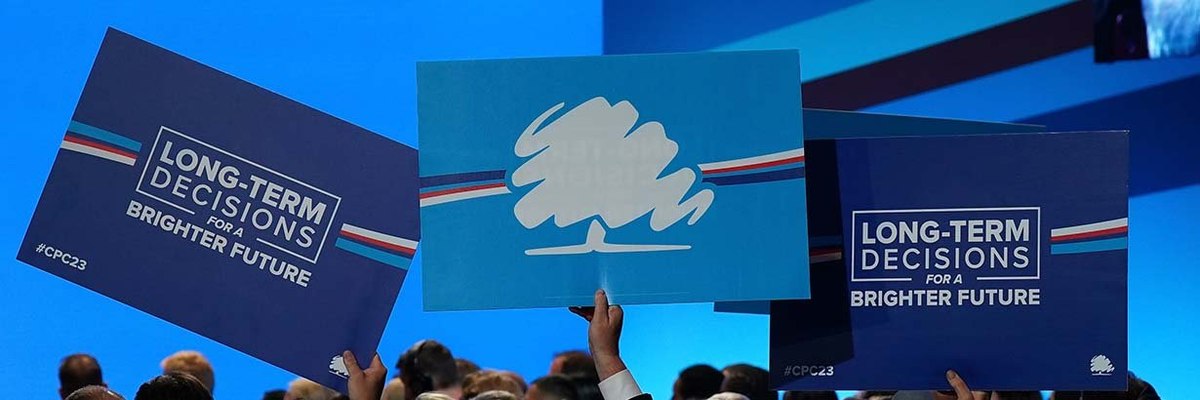Half of members are opposed to any merger with Reform UK, but also think the party should move more to the right
Having returned to opposition after suffering their worst general election result ever, attention in the Conservatives has naturally turned to the future of the party, with the centrepoint of debates being the leadership contest.As we saw last week, Conservative members favour Kemi Badenoch to be the next leader of the party. If she won, this would give her the power to shape the next era for the party and, ideally for them, return the Tories to power. But what do party members feel about the wider direction of the Conservative party going forwards?
One of the most radical proposed paths for the party to take is to merge with Reform UK, creating a single right-wing party, in a similar manner to Canada’s Progressive Conservatives and Canadian Alliance twenty years ago.
But the proposals divide the Conservative membership, with half of members (51%) against the idea and four in ten (42%) in favour of a hypothetical merger. Notably, more than twice as many strongly oppose any merger (31%) than strongly support one (14%), suggesting an attempted unification would struggle to carry a significant chunk of the party with it.
While support for a merger is clearer among certain sections of the party, it is never particularly overwhelming – even among the most supportive segments, those who voted for Liz Truss as leader or voted Leave, little more than half (53-54%) favour a single Conservative-Reform party.
Why members are opposed to the merger, though, isn’t necessarily down to questions of electability. Half of Conservative members (52%) believe a merger would improve their chances of winning the next general election, against three in ten (29%) who feel it would make it harder for them to defeat the Labour government.
Where the issue appears to be is a view that the parties are too different. Most Conservative members (56%) perceive their party as being ‘slightly right-of-centre’, while 22% feel it is ‘fairly right-wing’ and just 1% describe it as ‘very right-wing’. They feel broadly similarly about themselves, half (48%) describing themselves as slightly right-wing, a third (33%) as ‘fairly right-wing’ and only 6% as ‘very right-wing’.
But when it comes to their perceptions of Reform UK, just one in nine Tory members (11%) feel Nigel Farage’s party is ‘slightly right-of-centre’, with eight in ten (82%) viewing it as ‘fairly right-wing’ or ‘very right-wing’ political spectrum, including four in ten (39%) purely for the latter. Seemingly, Conservative members draw a clear ideological distinction between them and their more ‘very right-wing’ challengers.
It is this perceived ideological gulf that is likely why half of members (53%) believe a merged party would be more divided than the Conservative party is now, with only a quarter (25%) feeling a merger would lead to a more united party.
Regardless of how voters feel about an outright merger with Reform UK, they are not opposed to the Conservatives becoming more like it. Half of members (51%) believe the party should move towards the right under the next leader, against a third (34%) who think it should move towards the political centre and one in eight (12%) who feel the party should ideologically stay where it is.
Similarly, half of the membership (50%) believe the primary target of the Conservatives over the next parliament should be Reform UK voters, compared to only a quarter (25%) who feel Labour voters should be prioritised for winning over and one in six (16%) who think the same of the Lib Dems.
How do Conservative members feel about reforming party structures?
While not open to merging with Reform UK, Conservative members are open to wider reforms to their party. Many want to have a more active role in shaping the direction of the party, beyond merely being able to vote on the final two leadership candidates.
Seven in ten members (70%) want to be able to vote on party policy at the annual conference, with a similar 68% also wanting to be able to vote on all nominated leadership candidates. Six in ten (62%) also want to elect a deputy leader, reintroducing a position that has been out of use since 2005 and which was previously appointed by the party leader.
Were these reforms to be enacted, they would give Conservative members a similar position within their party to Labour members, who can choose between all nominated leadership candidates, elect a deputy leader, and can vote on party policy, though not in a way that binds the leadership.
If Conservative members did gain the ability to vote on policy, the party platform would likely include pledges to build new hospitals and prisons, ban under 18s from changing their gender, and invest in more ‘back to work’ programmes, which all hold the support of eight out of ten members or more (79-88%).
Leaving the European Convention on Human Rights is also supported by two-thirds of members (68%), with increasing the number of offshore wind farms also endorsed by 63%. Ending the ban on fracking, freezing all immigration to the UK for five years and reintroducing the Rwanda scheme also all get backing from a clear majority of party members (56-58%).
Less decisive, and potentially likely to stir conference debates, are issues like scrapping the top band of income tax or restoring the Birmingham to Manchester leg of HS2, which are supported by four in ten members (39-42%) and opposed by three in ten (28-29%). Privatising the NHS and the services it provides, the favoured path of just 2% of the public, is supported by a third of the party membership (35%) and opposed by 44%.
What do you think about the direction of the Conservative party, the future of British politics in general, and everything else? Have your say, join the YouGov panel, and get paid to share your thoughts. Sign up here.
Photo: Getty







